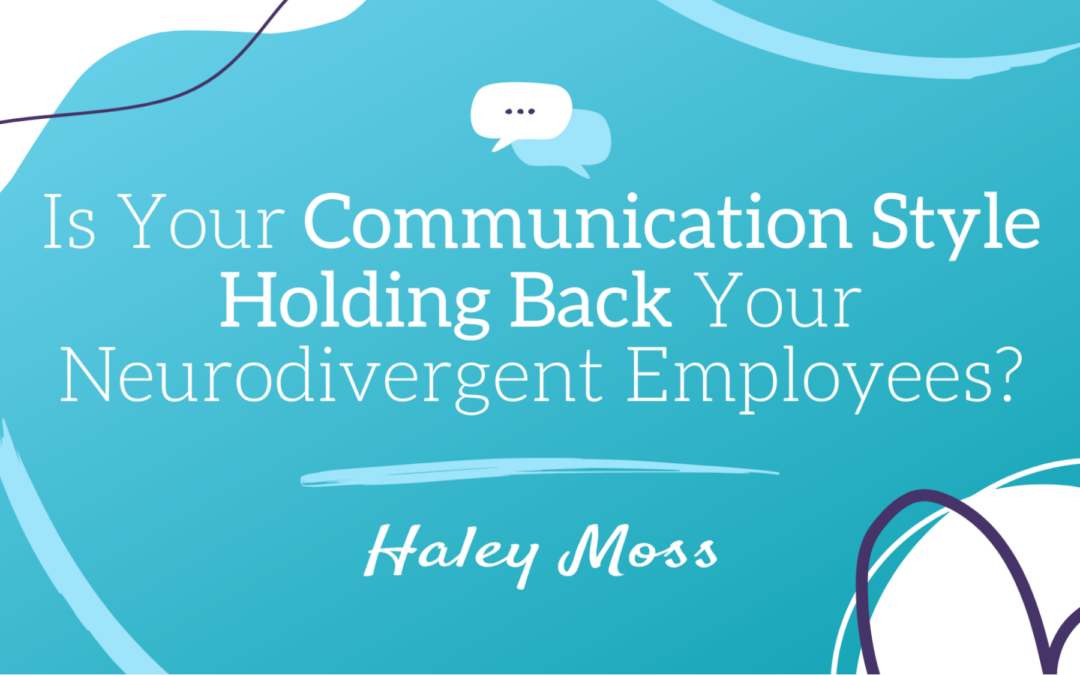Have you seen that some of your team members struggle through projects and meetings? If that is the case, you might find that some of your leadership strategies need to be adjusted, including communication. Communication will look a lot different for neurodivergent individuals, and it is essential that you consider those differences when working together to create an environment in which they will flourish.
So, here is everything you need to know about whether your communication style is holding back your neurodivergent employees.
Everyone’s Communication Styles Are Different
Communication differences do not start with neurodivergent individuals. Everyone will prefer different styles of communication. Some might prefer emails over phone calls, and some might want to talk in person rather than over a messenger app. All of these are valid choices. Neurodivergent individuals will come with their own preferences.
As a leader, it can be easy to stick with what you know and communicate the same way with everyone – with direct eye contact, curt responses, and quick instructions. However, these might be the exact opposite of what your neurodivergent employees need. If you don’t adapt to the needs of your team members, you could be holding them back because they have difficulty communicating with you and understanding what you need.
How You Can Improve Your Communication Style
If you start to see confusion within your team, especially among neurodivergent members, it is time to consider changing your approach.
Try Written Communication
Many neurodivergent individuals do best when their instructions, directions, or conversations are written out. This gives them time to review what is being said, process it, and either respond or proceed with the project ahead of them. It also gives them something to refer back to if they need it later on. Written communication can be for conversations or project instructions, but either way, you want to ensure you are still being clear and direct.
Use Direct Language
Direct language is essential. Commonly, some neurodivergent individuals will take things literally, so as you communicate with them, it is necessary to talk to them directly to ensure they understand what is being said. This is especially useful when giving directions for a project. If you want something done a specific way, say that rather than allude to it. Direct and straightforward language can ensure there is no miscommunication or confusion.
Avoid Nonverbal Cues
Nonverbal cues such as a wink or a head nod in relation to something might not be as easily understood when directed to a neurodivergent individual. The same goes for sarcasm or metaphors. It is best to say what you mean and be clear about it. Don’t rely on your body language to speak for you. Additionally, if you are trying to communicate through tone changes, neurodivergent individuals might not pick up on it as quickly or at all. If you dislike something, say it.
Be Detailed
An essential aspect to take away from all of this is to be detailed when you communicate. If you think you are explaining something too much, it is probably the right amount for a neurodivergent individual. Being detailed when reviewing a goal, project, or task can ensure that nothing is missed and everything is appropriately communicated on both sides.
Most Importantly, Ask
Lastly, if you feel that your communication style is not working with your neurodivergent employees, ask. Ask them how they are doing, if they understand their role and tasks, and if there are any ways that you can help ensure their success moving forward. If you don’t know, it doesn’t hurt to ask. Every neurodivergent individual is different and will have their own communication method they like best. Don’t be afraid to learn what each of them prefers and work that into your leadership style.
Communication is an essential part of the workplace. It is important to remember that everyone will communicate differently. If you have further questions or wish to learn how your workplace can better itself for neurodivergent individuals, contact me!

